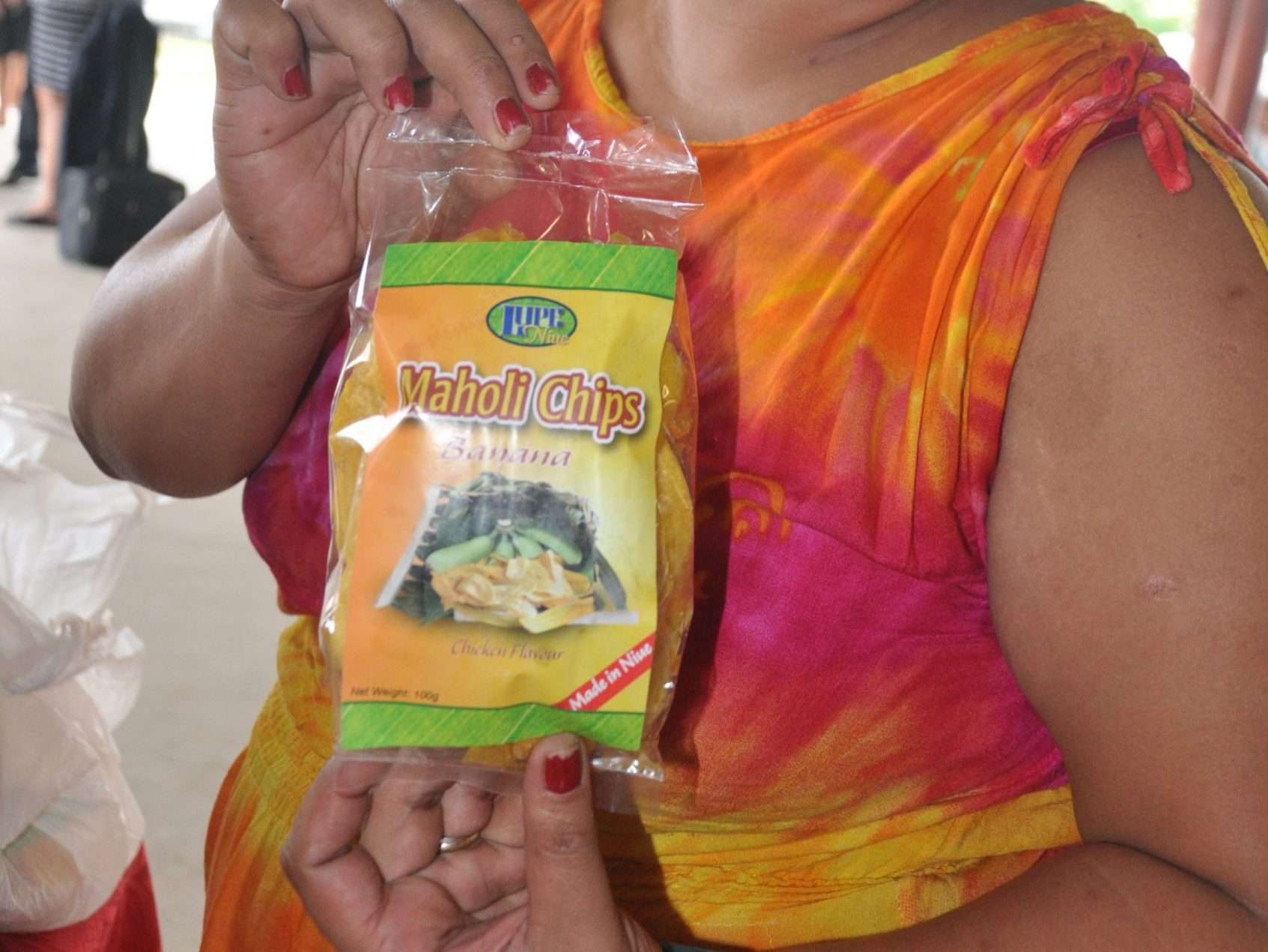
In Niue’s humble industrious capital – Alofi, local entrepreneur Feofaaki Sakalia Fou can be found busy in her home kitchen, meticulously turning banana into chips.
It has been the way of life for Feo, as she is commonly known, seeing her mother make and sell banana chips and now, her husband and children.
This is the mainstay of their small family business called Lupe Niue, aptly named after her mother Lupe. The business was established in 2001 but was not formally registered until 2011, and has since grown to become one of Niue’s promising enterprises.
“The business has always been family operated. I started learning from my mum at a young age. Going to the markets to help with selling and learning how to make the fusi (banana) chips,” Feo said.
“When mum retired and left Niue to move to Auckland, I took over the business in 2013 and made upgrades to the packaging and label to continue building the business.”
Demand for locally made products like banana chips rises during peak tourist seasons in Niue, usually from June to October. There is also an untapped Niuean diaspora market in New Zealand who are keen to consume Niuean products.
“Locally, we sell our banana chips in Niue to the largest supermarket, Swanson Limited and the Airport shop in the departure lounge. We also sell during weekly markets in the main town of Alofi and our weekly stall outside the airport when flights come in,” she said.
In Niue, small-scale food processors like Feo face multiple issues – from an inconsistent supply of raw materials to maintaining markets – and are vulnerable to external shocks. With the rise in demand during peak seasons, the availability of raw materials has increasingly become a challenge. Banana chips are normally made from under-ripe fruits by frying the slices. To make 60 bags of chips, at least ten kilograms of raw banana is required.
Some key constraints for local processing of food products also include a lack of awareness about packaging, branding and labelling requirements, and availability of packaging and labelling technology.
“The bananas are not available all year round. The harvest season is in the off-season to the tourism peak periods which is my busiest months of trade as well as have the volume to process and export all year round. I also aim to improve labelling by adding the nutritional information. If I can extend [the ]shelf life I can then in turn offer increased income security to my suppliers/the farmers,” Feo says.
Feo is keen to explore ways to boost the production of banana chips and maintain a steady supply to its markets throughout the year.
To do this, Lupe Niue has partnered with the Australia and New Zealand-supported Pacific Horticultural and Agricultural Market Access Plus (PHAMA Plus) Program, implemented by DT Global, to help boost the trade of locally made banana chips by extending product shelf-life.
Through the partnership, a Food Production Adviser is assisting Lupe Niue to explore ways of improving the shelf life and packaging of its products.
The work will include an assessment of the current business processes for sourcing, processing, and packaging of banana chips and specific recommendations to Lupe Niue to extend the shelf-life of their final products. Additionally, the assessment will consider the different roles that women, men, youth and people with disabilities play in the banana chips value chain. This will also help understand barriers and opportunities for women’s economic empowerment in Niue relating to shifting negative social and cultural norms; improving women’s voice and representation.
“I want to break into the overseas markets. I already have buyers waiting to purchase my chips to sell. I was previously exporting but had to stop as my labelling wasn’t up to standard and I couldn’t meet demand,” Feo added.
As part of a commitment towards Environment, Climate and Resilience, PHAMA Plus will support Lupe Niue’s waste management where banana peelings will be composted into organic fertilizer.
With changes on the horizon, Feo hopes to expand Lupe Niue franchises in Samoa and Tonga and take her banana chips to the rest of the world.